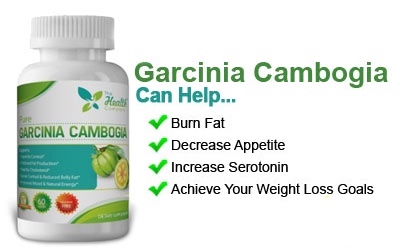
We've all been there. Something, maybe your bladder, a noise, or a dream, jerks you awake in the middle of the night. You turn over, get comfortable, and expect to fall right back to sleep, but after an hour goes by, you realize it's not happening.
What can you do if you wake up too soon and can't get back to sleep?
What Is Keeping You Up?
Most of the time, when people struggle with maintaining sleep all night, it's because of worry or distress. You wake up for some simple reason, but then your mind starts swirling around, and you can't stop it long enough to fall back to sleep.
The amygdala, a part of the brain that hasn't evolved much over time, confuses these anxious thoughts with actual physical threats and magnifies them, making sure you're nice and wide-awake so you can survive whatever assault is coming.
Tricks for Getting Back to Sleep
You need to get adequate sleep for many healthy body functions.
Here are some things to try the next time you wake up in the middle of the night, and your amygdala won't let you go back to sleep.
- Do some deep breathing exercises. It may sound cliché, but deep breathing actually does relax your mind and body. The breathing technique called "equal breathing" is a great one to do for relaxation. Breathe in through your nose as you count to 3. Hold the breath for 3 counts. Exhale while counting to 3. Repeat as necessary.
- Get out of bed for a bit. Don't lie in bed awake for more than 15 or 20 minutes. If it's looking like you aren't going to fall back to sleep easily, get up. You want to train your body that the bed is for sleeping. Sit in the living room for a few minutes or walk around a bit. But keep yourself in dim lighting, and don't look at any screens or electronics while you're up.
- Read until your eyes feel tired. This would be a great time to get a chapter or two of reading done. It can help focus your mind, break the cycle of distressed thoughts, and physically tire your eyes. Just choose something relaxing, not something that is likely to get you wound up further.
- Practice visualization techniques. Close your eyes, use your deep breathing and imagine that you are somewhere lovely and relaxing from your past. It could be your childhood home, a vacation you've taken, or anywhere else that made you feel safe and calm. Imagine this place in as much detail as you can, including the smells. You'll be relaxed and ready to fall asleep before you know it.
- Make a list of what's worrying you. Write down whatever is making you anxious and keeping you from falling back to sleep. Whether it's a to-do list, a pros and cons list about a decision, or just a random thought you're having, write it down. Get it out of your head and onto the paper and tell yourself you'll deal with it in the morning. In the light of day, the worries will probably seem less big and scary.
- Ingest some Healthy Sleep Tonic. This pink Himalayan salt and honey tonic helps many people get back to sleep. You can keep some on your nightstand and put a small spoonful under your tongue when you can't drift off.
- Don't look at the clock. When you're having trouble falling back to sleep in the middle of the night, ignore the clock. Better yet, don't have a clock in your room unless you absolutely must, and keep it turned away from you if you do have to have it. Watching the time tick away compounds your stress and anxiety, making it harder for you to relax and sleep.
- Try progressive muscle relaxation. This physical technique for relaxing your body can work really well to get you back to sleep. Starting with your toes, clench and then relax each muscle group in your body for 10 seconds or so, all the way up to your eyes. Use deep, rhythmic breathing while you do so, and focus your mind on the way your body feels.
- Create a positive sleep association. As you are relaxed and falling asleep at night, perform a physical action like stroking your face with a finger or moving your feet a certain way. Over time, your body and mind will associate that action with sleep. Then, you can perform it if you wake up at night, to tell your brain that it's time to go back to sleep. You could make progressive muscle relaxation a sleep association by doing it just before you fall asleep each night.
- Make sure your room is dark. Human bodies run on a circadian rhythm that responds to light, so having too much illumination in your bedroom can disrupt your cycle and have you awake when you should be asleep. Use blackout shades if you need to, and remove other sources of light from the bedroom as much as possible.
- Roll your eyes. When you sleep, your eyes normally roll up. Rolling your eyes up yourself can produce relaxation and help you get back to sleep more easily. Try doing it a few times while breathing deeply, but be sure to do it gently so you don't strain your eyes.
- Use gratefulness. When your mind is racing with anxieties and to-do lists, it can help to combat those thoughts with some good old-fashioned blessing-counting. Relax, and start to mentally list everything in your life that you're grateful for, no matter how small or insignificant it may seem. It's hard to catastrophize when you're busy being grateful.
- Have a cup of bone broth. Bone broth, made by slow-cooking fish or animal bones and cartilage with vinegar, spices, and vegetables, contains glycine, which is important for sleep (Wataru YAMADERA, 2007). You can keep it in your refrigerator and warm a cup to drink if you're having trouble getting back to sleep. Having some before bedtime might even keep the sleep maintenance problem from occurring in the first place. Making your own is a breeze: "Easy Bone Broth."
- Try magnesium. Magnesium can help your muscles relax, and it can also decrease your production of cortisol, the stress hormone. Taking a magnesium supplement can straighten out many sleep problems. Check with your doctor before starting any supplement.
Practice these techniques to see what works best for you, and you'll be back to sleep in no time.
Works Cited
- Wataru YAMADERA, K. I. (2007, March 27). Glycine ingestion improves subjective sleep quality in human volunteers, correlating with polysomnographic changes. Retrieved from onlinelibrary.wiley.com: DOI: 10.1111/j.1479-8425.2007.00262.x.


